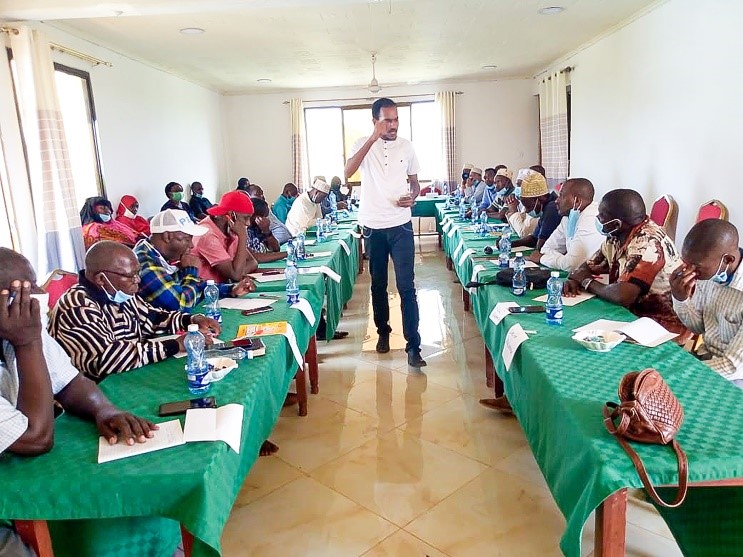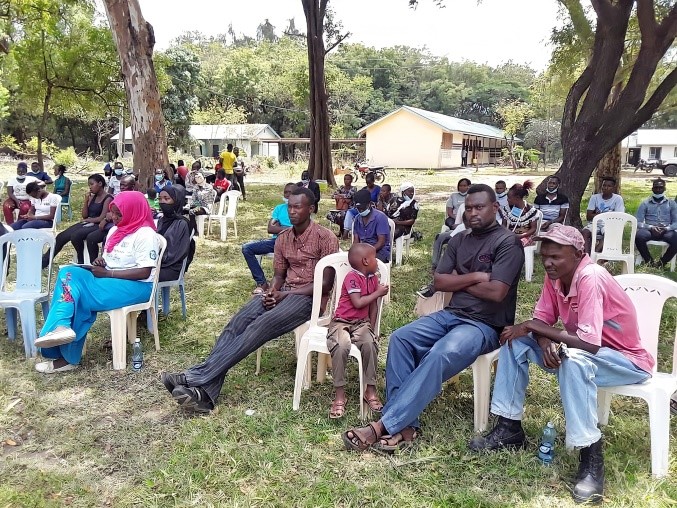Lamu children battle odds to return to school
“Thank you for the night. I had a great time with you,” read a love letter that sent alarm bells tolling among parents in Lamu East at Kenya’s coast. The letter had been written by a Class 6 girl to a boy in Class 7.
For members of both the Inter-Religious Network (IRN) and the National Parents Association (NPA) of Lamu, the letter provided a fresh perspective into the pregnancy crisis among teenage girls during the COVID 19 – induced school closure. “We knew there were problems – massive problems – but the letter helped us come to terms with the extent of the challenge we were facing,” says Sheikh Ibrahim Shabib.
The IRN and the NPA response to the letter, among other challenges, was to double their efforts. They started counselling programmes which included this girl and her boyfriend together with boys trapped in the drugs network, children who had abandoned education to venture into business and pregnant girls.
The novel Corona Virus, also known as COVID-19, has wreaked havoc across the world but in Lamu, its most visible impact has been among school-going children. “Some girls got married while others are pregnant in school right now,” says Sheikh Shabib. “The back-to-school initiative has achieved almost 99 per cent success rate but other challenges still remain,” Sheikh Shabib says. “Classrooms with pregnant girls, boys trying to sell drugs to fellow students and children who can’t wait for school to be over so they can ride boda boda (motorcycle taxis) to make money. It is a complex problem but we are standing up to it to save our children.”

They have brought parents on board because they bear the greatest responsibility over their children. Putting parents at the forefront of the search for solutions is necessary, the Sheikh says, because they are pivotal in bringing up stable children. He says IRN is working together with the county and national governments and other stakeholders to find solutions and improve parenting skills in the county.
“The government’s effort cannot be faulted,” says the Sheikh. “The county government is paying fees for learners in public schools. At the start of the year we had sent out letters to all parents to prepare them for the return to school moment and they responded enthusiastically.”
Lamu is a picturesque, quaint town encapsulated in time. It is recognised as a World Heritage Site. Its centuries-old streets have enchanted the world and drawn in hundreds of thousands of tourists annually. With COVID-19 restrictions and the complete ban on travelling in many parts of the world, Lamu’s economy has completely collapsed, according to the Kenya News Agency (KNA). The resulting poverty has led to parents sending their children out to engage in business activities to help feed their families, thus distracting them from school.

However, even before the Corona virus, Lamu’s enchanting narrow streets had been invaded by boda boda (motorcycle taxis) riders, leading to many accidents. This led UNICEF to warn that unless the motorcycle menace was addressed, the town’s privileged position as a World Heritage Site would be reviewed, KNA reported.
According to a native, Robert Muteti, the Manager of Sifa FM radio station, people in Lamu did not believe in the existence of the corona virus. “When the corona virus was first announced, people here dismissed it as a government hoax. They only began to believe the virus’ existence when students in some school in Mombasa were taken ill in 2020,” Muteti says.

Sifa FM is part of the DigiRedio Community Radio platform that has been running the Turudi Shule Na Tumaini campaign funded by UNICEF and coordinated by Centre for Behaviour Change and Communication (CBCC). At first, an accident at the radio station rendered it unable to continue with the broadcasts. “A fire accident, which began at a neighbouring property, burnt down our broadcasting equipment,” Mr Muteti says, “thereby disrupting our broadcasts. At the time, our Turudi Shule programmes had already been getting traction with a rather sceptical public.
On return, their Turudi Shule broadcasts got massive public response, which helped them bridge the credibility gap about COVID-19. “Initially when you urged them to wear masks, socially distance and wash hands, they hit you with the question, ‘How much are you getting paid to say that?’ ” Time has, however, helped Sifa FM to drive home the information, aided in part by the fact that it is the only private broadcaster in Lamu. A considerably higher number of people now comply with the Ministry of Health’s COVID-19 guidelines than before.
This reporting is with support of UNICEF Kenya under the Back-to-school campaign program being run by Centre for Behaviour Change and Communication (CBCC) aimed at encouraging parents to take their children back to school, empowering them on how to ensure their children’s safety and support the schools to be safe for the children during this COVID-19 season through community mobilization.
Our Services
View our Centre for Behaviour Change and Communication Services.













